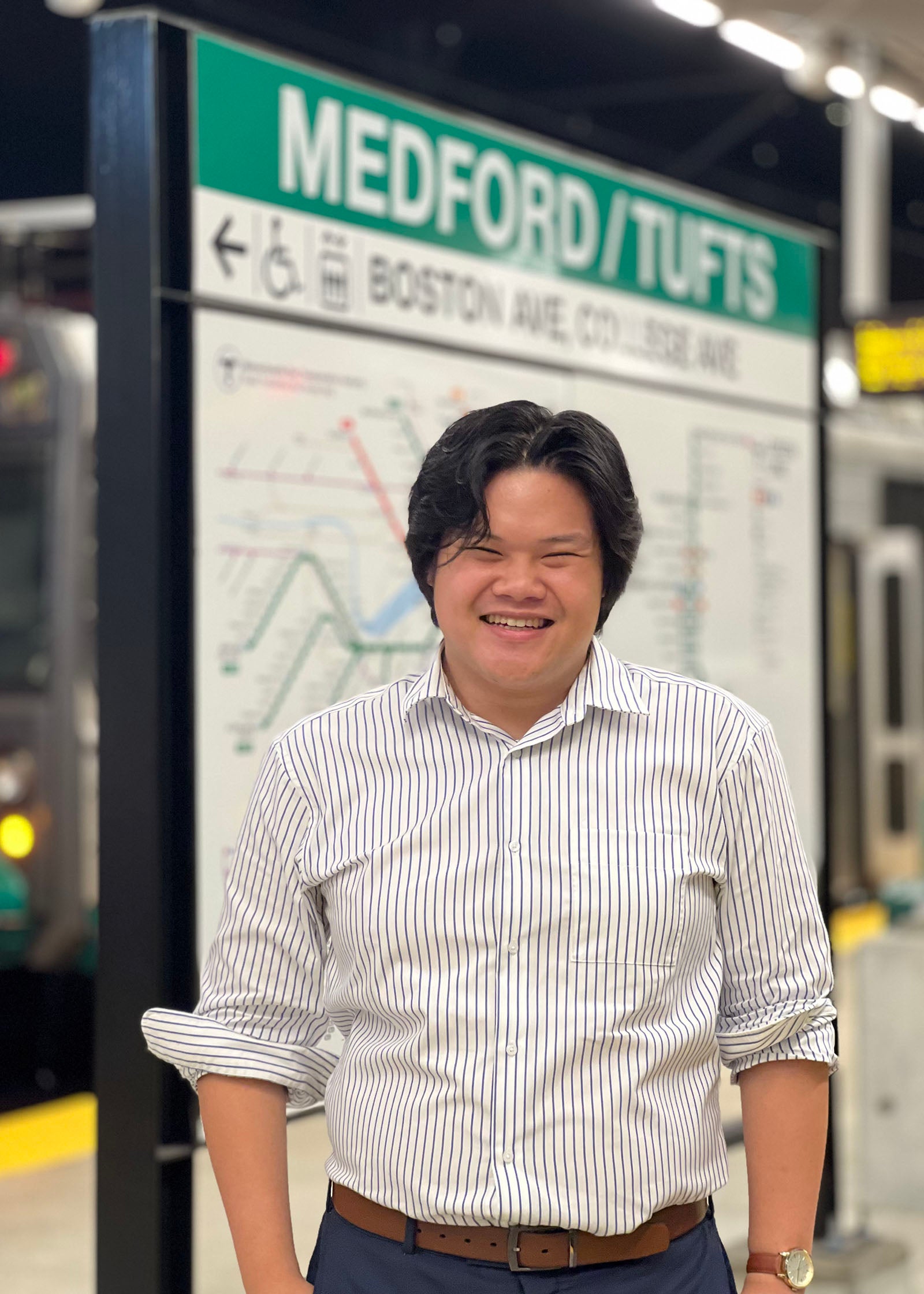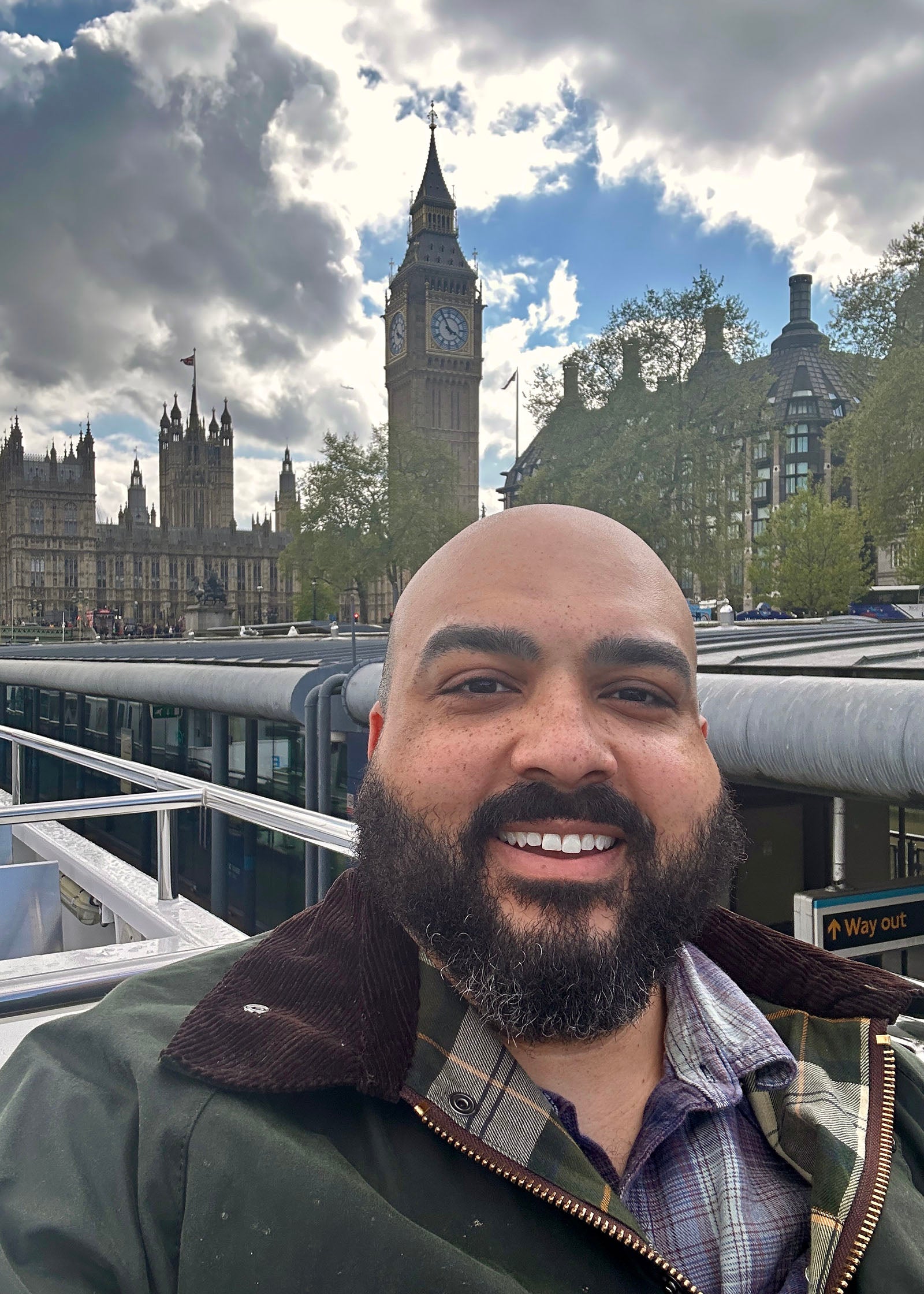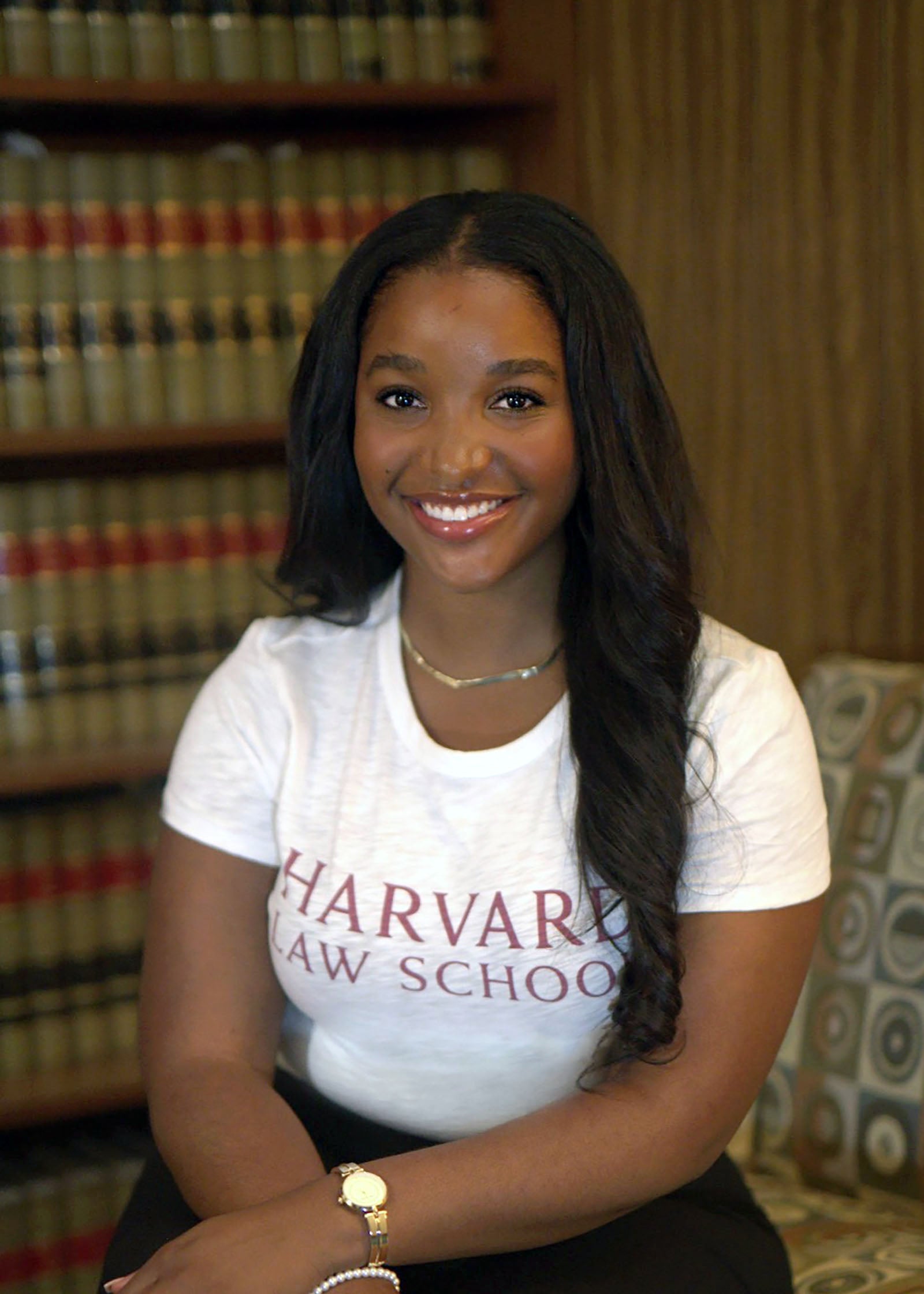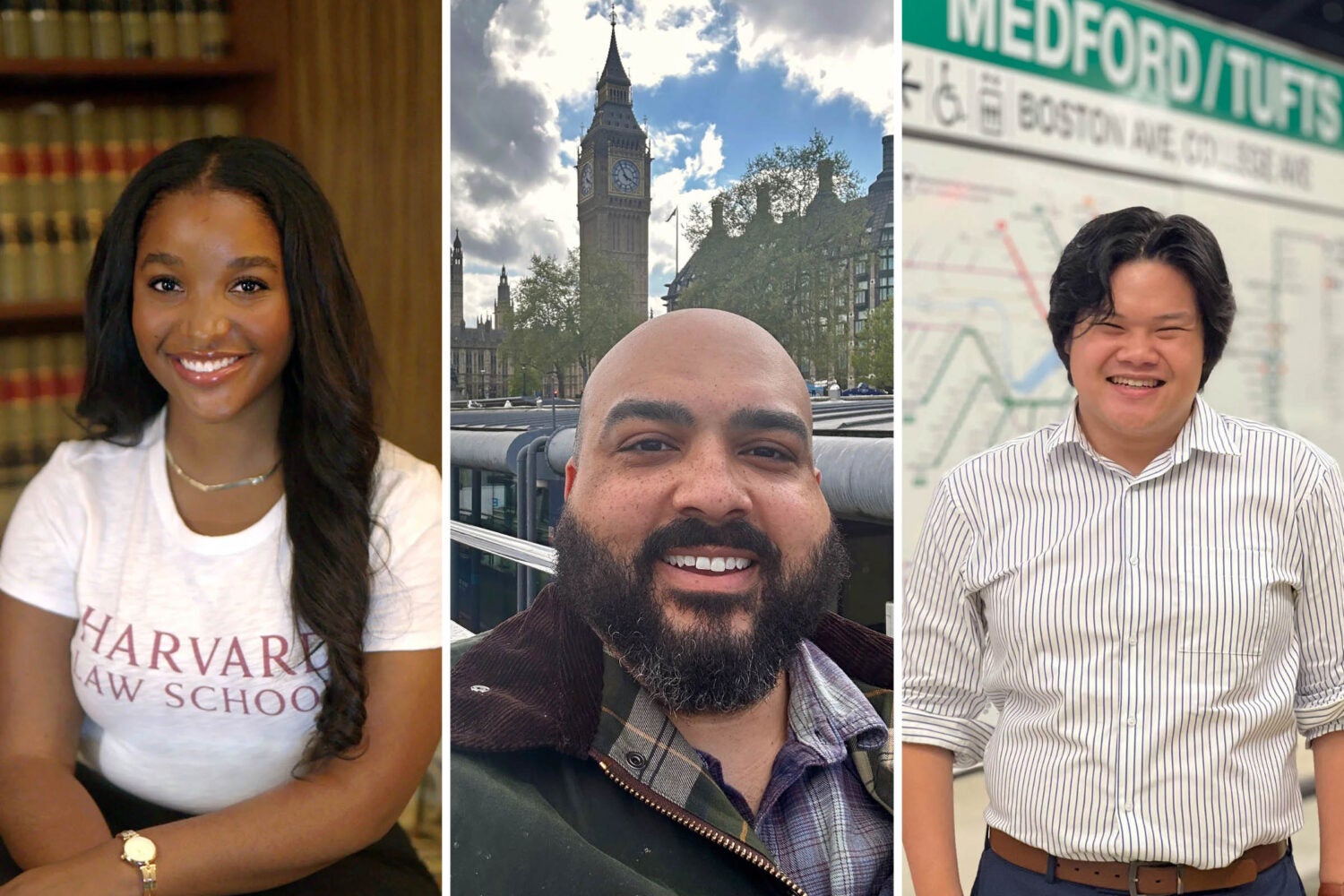Justin Tseng ’27 spends his evenings the way most first-year students at Harvard Law School do — reading and outlining cases, hanging out with new friends, or catching up on Boston’s sports teams.
But every other Tuesday, Tseng does something a bit more unusual: He takes a break from studying the law to make it — as a member of the Medford, Massachusetts, city council.
“I genuinely think it’s one of the best places to live in the country and even the world,” he says of the Boston region. “And I think good decisions from policymakers can help us continue on that upward trajectory.”
Growing up as a first-generation Taiwanese American wasn’t always easy, Tseng says. His parents had moved to the U.S. to pursue careers in the sciences, but the Great Recession brought difficult economic times. And it can be challenging to feel like you are different than those around you, he says. “For immigrants, it can be hard to fit into a new place.”
But Tseng says that the Medford community — and his teachers in particular — came together to support him. “They helped me fit in, learn how to be an American,” he says. “I think that spirit got me into public service. I wanted to repay what I feel I owe to my community.”
Today, Tseng is one of several incoming Harvard Law School students who are serving their Boston communities — all while juggling coursework, extracurriculars, and everyday life.
‘We all deserve a seat at the table’
Even as a young child, Tseng knew that education would be key to gaining the skills he’d need to contribute to his community. As an undergraduate at Harvard College, he majored in social studies and East Asian studies, interested in learning about how societies are built and organized.
“I wanted to look at how the government, politics, and the law work together today,” he says. “And then, I wanted to know how to translate that to change on the ground. And, how do we get people invested and participating in that system?”
A year before graduation, Tseng decided it was time to make his promise to his community a reality by making a bid for city council.
“During the Covid years, I started to pay a lot more attention to local politics, and I began to feel like our city government didn’t necessarily reflect the will of the people on the ground,” he says. “In other words, it didn’t reflect the diversity and progressive energy of the residents in our city or their desire for change. I wanted to contribute to that conversation.”
Tseng says that the racial justice protests following George Floyd’s death, the Stop Asian Hate movement, and the beginnings of an honest conversation about Medford’s history also inspired him to run. “I wanted to make sure there was someone with skin in the game to continue those conversations, even when the national momentum began to die down,” he says.
Tseng’s campaign also focused on issues such as the city’s limited educational budget. “School provided opportunities for me to learn and grow and make friends,” he says. “I wanted to make sure that the kids that come after me have those opportunities as well.”
Finishing fourth in the race — and ahead of two incumbents — Tseng became the first Asian American and youngest ever member of Medford’s city council in 2021.

In his role, he has prioritized inclusion and accessibility, holding listening sessions with underrepresented groups and sharing newsletters to update the public on the council’s work. He is currently working on a user’s guide to the city council to help people better understand what it does and how they can participate. And he is interested in how zoning and planning can facilitate housing affordability and promote environmentally friendly transportation methods.
“I’ve really tried to get out into the community, bringing government to the people, instead of expecting people to come to City Hall,” Tseng says.
Now, Tseng is serving his second term and settling into the rhythms of being a Harvard Law student. Although he had not originally considered law school, he says his position on the council has shown him how powerful legal knowledge can be to policymakers.
And while he isn’t sure which direction he’ll ultimately take his career, he is certain that participation and advocacy — especially locally — are crucial to a functioning society.
“We all deserve a seat at the table, and if we don’t pull up our chair ourselves, then decisions are being made without our input,” he says. “And from the government side, we have to try to get people involved, to listen to their voices. I think rebuilding these bonds at a local level with our political institutions is fundamental to the health of our democracy.”
Unifying the community
Tseng is not the only Harvard Law scholar pulling double duty as a student and a public servant.
For Randall Carter ’26, attending Harvard is something like a homecoming. Born and raised in Cambridge, Carter studied psychology at Colgate University in New York, then eventually settled with his wife in her hometown of Melrose, a city just a few miles north of Cambridge.
He says that turning 30 — and a desire to get to know his neighbors — convinced him to look for ways to get involved in his new community. “My priorities started evolving, and I now had the bandwidth to do something with a positive impact.”
Long passionate about civil rights, Carter says that Melrose’s Human Rights Commission jumped out at him. Formed in the 1990’s to help resolve disputes that involve claims of discrimination, the city’s commission now also develops programs to highlight and celebrate diversity of all kinds.

“Our original function hasn’t become completely obsolete,” Carter says, “but I’m happy to report that the bread and butter of our work is focused on bringing the city of Melrose together, in unifying our community through events and organizing.”
Since he began serving on the commission two years ago, Carter has helped plan and execute several of its signature events, including an annual Martin Luther King Jr. Day of Service and Melrose PRIDE.
“It’s been a really great way to get to know the city,” he says.
While a prior job at a bioscience nonprofit sparked his initial interest in the law, Carter says he’s hoping to use his time at Harvard Law to learn how to leverage the legal system to continue to make change in the world.
“I think a lot of people would agree that that our government is not in a stellar place,” he says. “And that deep concern for the direction our country is going in is part of what brought me to law school.”
When he is not concentrating on school or his work on the commission, Carter says he can be found tooling around on instruments ranging from the keyboard to the guitar, listening to a wide variety of musical genres, or hanging out with his wife and Oscar, the couple’s 20-pound Cavalier King Charles Spaniel.
Like Tseng, he intends to keep an open mind about where he might end up after law school. But he, too, sees Boston as his home.
“I’m from here, my wife is from here. It’s where we have roots. I love it. It’s a great place to be,” he says, adding, “It’s also a good legal market.”
Advocating for student voices
A sixth generation Floridian, Danielle Geathers ’27 grew up surrounded by Black women lawyers. At the dinner table, she would learn about her mother’s work as a probate and real estate attorney or share a meal with members of the Gwen S. Cherry Black Women Lawyers Association, of which her mother was president.
But the law wasn’t Geathers’ only love. She says she has always enjoyed inventing things, working with her hands to create new and useful objects. And so, when it came time to decide where she wanted to go to college, she says, “I felt torn between STEM and the humanities.”
That is, until her mom introduced her to an intellectual property lawyer, and suddenly Geathers could envision a future where her two passions merged. “I said, ‘Oh, I’m sold!’” she remembers.
Geathers opted to attend MIT — also located in Cambridge — where she studied mechanical engineering. She joined MIT’s Black Student Union, where she advocated for students’ needs and fostered a community for underrepresented students on campus.
Geathers says she liked organizing and leadership, along with the sense that her work was making a difference. To continue to harness that energy, she accepted a role as officer on diversity, and then ran for president of the student body. In 2020, she became the first Black woman to lead MIT’s student government, a position she held two years in a row.
As part of her role, she served on several schoolwide committees with members of the faculty, staff, and students focused on addressing key issues around the university. She also collaborated with MIT’s Corporation, the school’s governing body, which reserves a space for a recent graduate to join each year.
“It’s really exciting that, as a recent grad, your voice is valued as much as anyone else,” Geathers says.
Hoping to further her impact on her alma mater, and to amplify the voices of recent graduates and Black students, Geathers applied for the position. After a round of interviews and a vote by trustees and other recent graduates, she was selected in 2022 as the newest member of the board — a five-year position.

Today, in addition to her first-year coursework at Harvard Law, Geathers attends MIT’s quarterly board meetings, where she considers important university initiatives. She also visits the school’s departments through the board’s Visiting Committees to understand their goals and needs, sharing what she learns with the board to ensure that key programs are supported. Through it all, she aims to advocate for current student and recent graduate needs at the Institute.
It is all a testament to her deep appreciation for her undergraduate institution, Geathers says. “I love MIT. I love coming back, and I love having a continued connection to it.”
In her time outside of classes and the board, Geathers is rarely bored, practicing Pilates, playing soccer, or supporting Black-owned small businesses and restaurants. (She points to Black Owned Bos. as a good local resource.)
She says she is still considering a career in intellectual property law, one that could help rectify the historical lack of access Black business owners have had to IP protection. But she is also interested in educational access and is open to other areas as well. Regardless of what she decides to practice, Geathers believes that the law is an important tool to achieve her goals.
“My life experiences have shown that the law is critical when you think about equity in general, especially in educational and economic mobility,” she says.
Want to stay up to date with Harvard Law Today? Sign up for our weekly newsletter.
